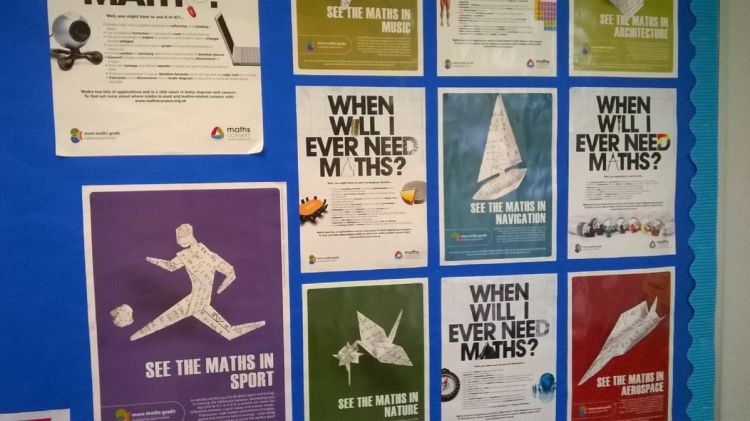Could Core Maths encourage more students to continue with maths beyond GCSE?

Blog by Dr. Rachel Mathieson, Centre for Curriculum, Pedagogy and Policy.
This blog post was originally written for the Edge Foundation.
When it comes to post-compulsory maths, England has poor participation rates in comparison with other developed countries, despite rising A-level maths entries, and the fact that maths has, for some years now, been the most popular A-level – in 2018, 90,000 students took the subject.
However, over 200,000 students each year pass their GCSE with a grade C (now 4) or above, but then give up studying maths. There are many reasons for this, such as the narrowness of the post-GCSE curriculum, widespread problematic attitudes towards maths, and the perceived difficulty and abstractness of the A-level mathematics course.
Higher education and employers alike have long been bemoaning the lack of numeracy and quantitative skills amongst new entrants, who often have not done any maths since they took their GCSE. Core Maths qualifications are intended to encourage more students to continue with maths beyond GCSE by providing a very different kind of maths course for post-16 students.
At Leeds, we have been looking at how Core Maths is going in schools and colleges up and down the country. Teachers taking part in our research really do value the opportunity to offer a maths course other than A-level maths, which they agree does not suit all students. One teacher described Core Maths as “a really worthwhile qualification”.
For teachers, the course can be a breath of fresh air. They like the fact that Core Maths is about taking concepts and skills which students have already learned at GCSE and developing ways of applying those skills and concepts in more realistic contexts. One headteacher said that Core Maths had, “provided our students with an opportunity to continue maths and maintain that subject within their profile for the future, which we felt was a really strong thing to do”. The course takes a student-centred approach, and invites discussion, speculation and a critical approach to maths. It has even been described as fun!
The emphasis on financial maths is very popular with students; teachers often say they wish all students were studying at least this part of the Core Maths syllabus. Core Maths can help support students with other subjects, such as psychology, geography or business, or it can simply allow students taking arts or humanities-based subject combinations to keep maths within their study programme.
Students who have taken Core Maths believe that the course has opened their eyes to different ways of using maths, and given them a better insight into the way that numbers are used in work and in life. They believe it gives them advantages over students who have given up maths after GCSE. One student described the course as “practical and useful, and something that should be recommended to people who want to know how they can apply maths to real life.”
The biggest challenges for centres are how to fit Core Maths into their option blocks and their timetable, and whether to target the course at particular students or allow students to opt in. Both models are used successfully: it depends on what the priority is for each centre. Some use Core Maths specifically as a support course, targeting it at students taking particular curriculum subjects, or tying it in with certain study programmes. Others position Core Maths as an enrichment that any student can opt into.
Universities are beginning to take a positive view of Core Maths where students have taken it to enhance and support their post-16 qualifications. The University of Bath has recently become the first university to incorporate Core Maths qualifications officially into their offers for students, from 2020 entry onwards. The announcement in the Chancellor’s 2017 Autumn Budget of £600 extra funding per student taking a Level 3 mathematics qualification, is another sign of the value of continuing with maths beyond GCSE.
For more information about Core Maths, visit the Advanced Maths Support Programme website. For enquiries about our research, visit our project website where you will find more information and contact details.




